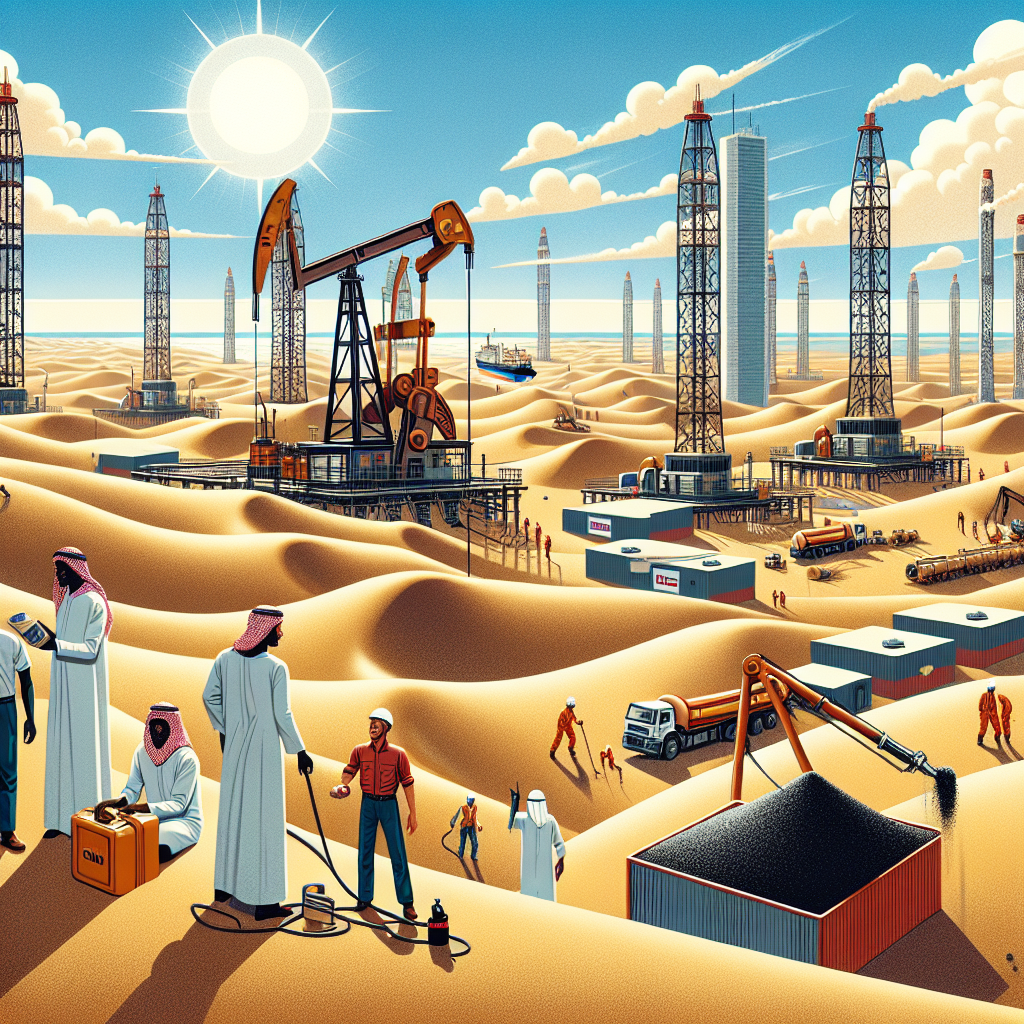Minister Al-Hwej Announces Plans to Double Oil Production and Expand Downstream Development
“There is no economy without energy, and this platform represents a strategy for growth,” said Minister Al-Hwej during his keynote address.

- Country:
- Libya
On January 19, 2025, Libya's aspirations for economic growth and energy sector transformation were the focus of the Libya Energy & Economic Summit (LEES) in Tripoli. Libya’s Minister of Economy and Trade, Mohamed Al-Hwej, emphasized the country’s commitment to maximizing its energy potential and diversifying its economy to achieve long-term growth and stability.
“There is no economy without energy, and this platform represents a strategy for growth,” said Minister Al-Hwej during his keynote address. He highlighted Libya’s vast untapped hydrocarbon reserves, robust solar energy potential, and plans to increase crude oil production to two million barrels per day. Beyond crude oil, Libya aims to develop chemical and petroleum products, transforming itself into a strategic hub connecting Europe and Africa.
Investment Climate and Challenges
The summit included a panel discussion on investment strategies, sponsored by Zahaf & Partners Law Firm, which explored Libya’s political and regulatory environment. Michel Cousins, Editor-in-Chief of Libya Energy, moderated the discussion, which featured prominent industry leaders and policy experts.
Nicolas Pringault, Vice President and Country Manager for Libya and Algeria at Harbour Energy, stressed the country’s position as a resource powerhouse. Libya holds Africa’s largest reserves, with 48 billion barrels of oil and 1.3 trillion cubic feet of gas. “This is very encouraging for international oil companies (IOCs) looking to explore,” Pringault said.
However, speakers acknowledged ongoing challenges. Dr. Ahmed Ali Attiga, a seasoned banker and former CEO of the Arab Petroleum Investments Corporation, emphasized that political stability remains a critical barrier. “Stability is essential, but it does not align with a divided country. This is the challenge Libya faces. Investors will come, and money will flow, but first, Libya must put its house in order,” Attiga stated.
Regulatory Framework and Legal Protections
The panel also focused on Libya’s legal and regulatory environment. Azza Maghur, Senior Strategy Advisor at Murzuq Oil Services, warned against altering the existing legal framework. “Given the situation today, we should stick to the laws we have to maintain stability. The protection we have through arbitration is crucial – I strongly recommend we do not change the legal framework for now, as it ensures investor confidence.”
Mohamed Dikna, Senior Consultant at Zahaf & Partners Law Firm, highlighted Libya’s existing investor protections, including the Value-Added Incentive Tax at 26%. “Libya’s investment laws provide strong protections, even in times of political unrest. But political stability must align with these legal guarantees to ensure investments are meaningful and secure,” Dikna noted.
Solar Energy Potential and Regional Integration
In addition to hydrocarbon production, Libya is focusing on renewable energy, particularly solar power. As part of its diversification strategy, the country is exploring collaborations with international partners to develop its solar infrastructure, potentially transforming Libya into a renewable energy hub for Europe and Africa.
The Path Forward
Libya’s participation in LEES underscores its commitment to overcoming internal challenges and building an environment conducive to investment and development. While political unity remains a hurdle, the country’s significant natural resources, strategic geographic location, and legal protections offer a compelling case for international investors.
By leveraging its vast reserves and renewable energy potential, Libya is poised to become a key player in global energy markets while advancing its economic diversification goals. For more details, visit LEES.
- READ MORE ON:
- Libya
- Mohamed Al-Hwej










